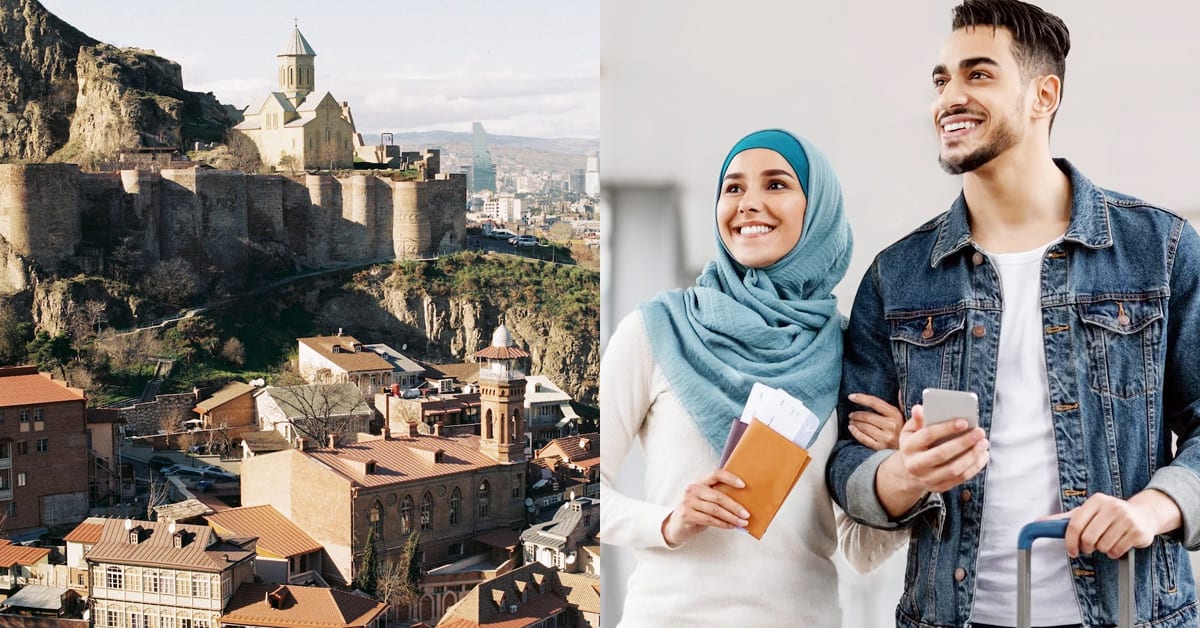Islam has a long history in Georgia, dating back to the 7th and 8th centuries when Arab forces introduced the religion. Today, Muslims comprise around 10% of Georgia’s population, with most living in the Adjara and Kvemo Kartli regions. The majority of Muslims in Georgia are Sunni, with a small number following Shia Islam. Many of Georgia’s Muslims are ethnic Azerbaijanis, but there are also Georgian Muslims and other ethnic groups who practice Islam.
Georgia is welcoming to Muslim visitors and provides a good level of safety for Muslim travellers. In larger cities like Tbilisi and Batumi, halal food is available, though smaller towns may have limited choices. Some hotels and guesthouses accommodate religious needs, such as providing prayer mats or indicating the direction of Qibla. The country offers several attractions for Muslim tourists, including historic mosques and Islamic architecture, particularly in regions with a significant Muslim population.
Religious freedom is respected in Georgia, and Muslims can practice their faith openly. Although Georgia is predominantly Christian, there is often a spirit of tolerance between different faith communities. However, it’s always advisable to be mindful of local customs and cultural differences when visiting.
Is Georgia Muslim-friendly?
Is Georgia Muslim Friendly?
Yes, Georgia is considered a Muslim-friendly destination due to its history of religious tolerance and constitutional guarantee of freedom of religion. Muslims comprise around 10% of the population, with significant communities in both the Adjara and Kvemo Kartli regions. Major cities, including Tbilisi and Batumi, have mosques for the Muslim population.
However, Islamic holidays are not officially recognized by the government, though Muslims celebrate them within their communities. Georgia is predominantly Orthodox Christian and generally welcoming to Muslim visitors. Georgia provides a safe and accommodating environment for Muslim tourists.
Is Georgia Safe for Muslims?
Yes, Georgia is safe for Muslims. The country is known for its hospitality towards all visitors, regardless of religion. Violent crimes against tourists are rare, and there are no specific threats targeting Muslims. However, like any country, please exercise standard precautions in Georgia and be aware of the surroundings, especially in less touristy areas.
What is the Muslim Population in Georgia?
The Muslim population in Georgia is estimated to be around 10-11% of the country’s total population, which translates to approximately 400,000 to 500,000 people. Most of Georgia’s Muslims are concentrated in two regions: Adjara in the southwest, where a portion of the population is ethnic Georgian Muslims, and Kvemo Kartli in the southeast, which has a large ethnic Azerbaijani Muslim community. The majority of Muslims in Georgia are Sunni, though there is a smaller Shia population, primarily among the ethnic Azerbaijanis.
What is the largest mosque in Georgia?
The Tbilisi Mosque, also known as the Jumah Mosque, is located in the capital city of Tbilisi. Built in 1895 during the Ottoman Empire’s influence, it is the only mosque in Tbilisi that serves Sunni and Shia Muslims under one roof.
However, the Tbilisi Mosque has a smaller capacity, accommodating around 500 worshippers. It features a modest dome and minaret and remains an important cultural and religious site. The mosque has undergone various renovations throughout its history, though there is no specific information regarding a major renovation in 2012 supported by the Turkish government.
Does Georgia Have Halal Food?
Yes, Georgia has halal food options. In cities like Tbilisi and Batumi, halal restaurants serve Turkish, Arabic, and local cuisine. Halal butcher shops and grocery stores also exist in areas with larger Muslim populations. However, the availability of halal food may be limited in smaller towns or rural areas, so it’s best to plan when traveling outside major cities.
Is Georgian Food Halal?
No, traditional Georgian cuisine is not inherently halal. Many Georgian dishes contain pork or alcohol, which are not permissible in Islamic dietary laws. However, plenty of vegetarian options and meat dishes can be prepared without pork. When dining out, it’s best to ask about ingredients and cooking methods to ensure compliance with halal requirements.

